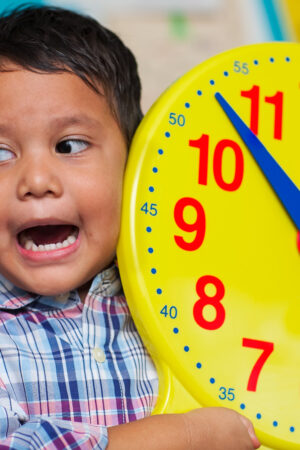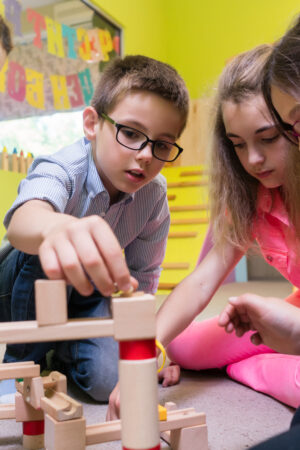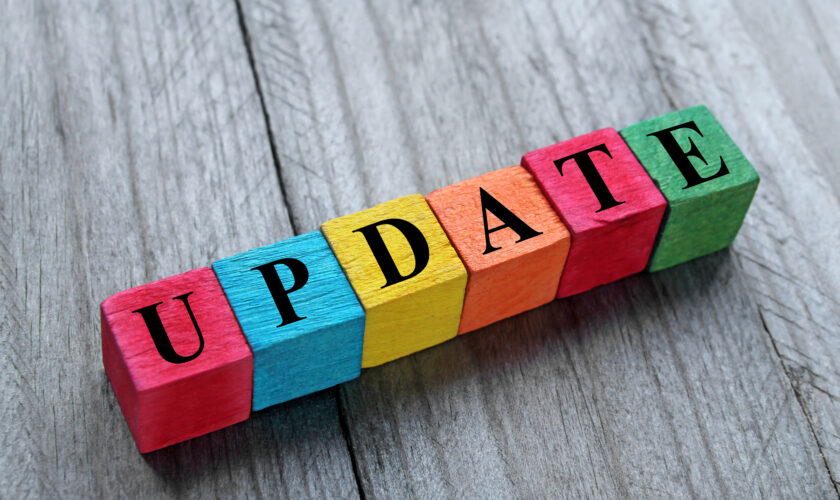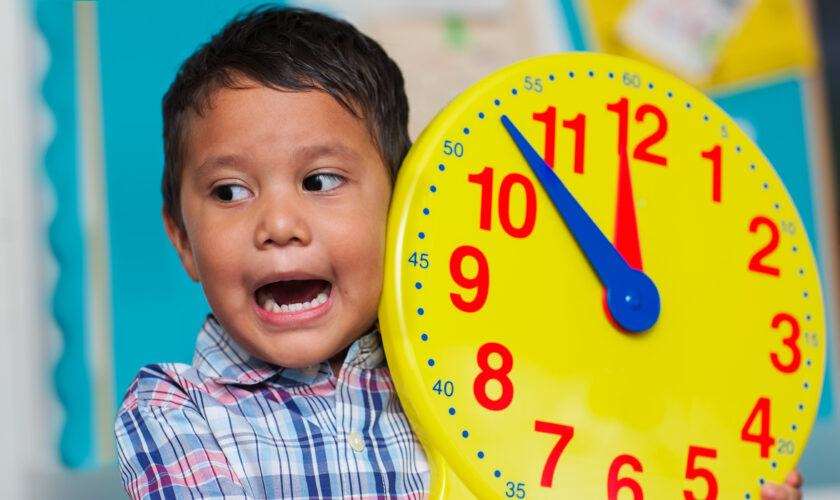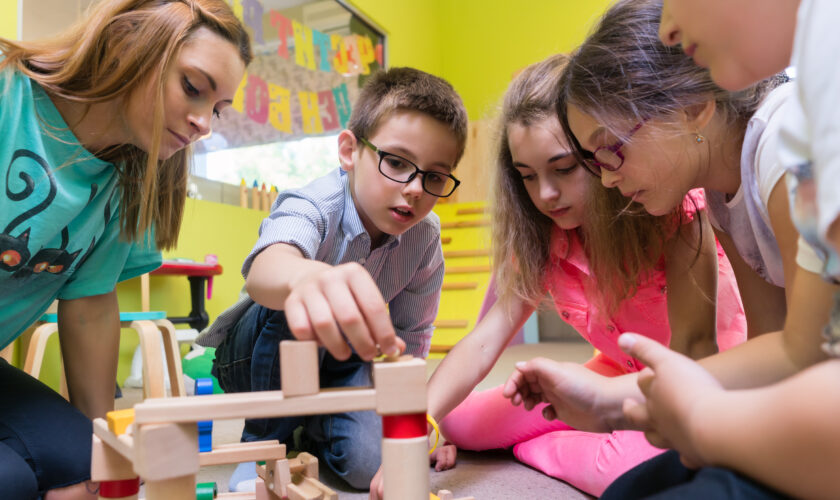The Program Quality Assessment (PQA) Team is available to support you in the Internal Assessment Process (IAP) by completing an on-site assessment in your program. In addition to the Environment Rating Scales® (ERS) and Classroom Observation Scoring System® (CLASS®) this opportunity is available for all Program Observation Instruments (POIs) listed in the Keystone STARS Standards.
Program Quality Assessment in PA
Internal Assessment
Let’s Talk Quality! On-site Assessments
Natalie Grebe
A key component of a program’s sustained quality that may not receive consistent attention is the director’s observations of classrooms. It is best practice for directors to observe classrooms and review their findings with teachers. Most directors will say the biggest reason for not being able to do this as well as they would like is time. While room observations may be scheduled, the constant interruptions of staff shortages, ill children, broken equipment, and parents’ needs make this difficult to complete. Some teachers may feel uncomfortable with their director in the classroom for an extended period of time or get more nervous at the thought of being “watched.” By implementing a few ideas and staying consistent, both directors and teachers can benefit from these observations.
Aimee Currier
Keystone STARS quality indicator EC 3.4.5 requires STAR 3 and STAR 4 early childhood and school-age programs to partner with their Quality Coach and a Program Quality Assessor to develop and implement a plan to complete internal assessments in their classrooms. Since the internal assessment process came about, there have been a few changes. This article will give a brief synopsis of what’s stayed the same and what’s changed.
By Kitty Syster
What is the DERS?
The Developmental Environment Rating Scale, DERS, is a program observation instrument to evaluate your classroom environment. The DERS is based on Montessori philosophy which measures qualities such as patience and persistence in children, precision and clarity in lessons, and order in the environment, which support the development of executive functions, literacy, and social-emotional learning.
The assessment team in PA is often asked if they have any tips to make meeting quality standards easier. Since they have experience visiting many programs in their professional careers, they have seen many programs employ strategies to make things easier, more efficient, and more effective. Implementing quality can be stressful or time consuming, but always worth it. So, this Q-T Corner moment aims at helping you along the way.
Guest Blogger- Jennifer Roberts
Extended Day Services manages 22 school-age programs, mostly in the South Hills of Pittsburgh. We have been around for 30 years and have tried many different curricula and SEL concepts over the years. Three years ago, we began using SPQA and slowly integrating its components into our programs. We integrated most of the SPQA elements into the STEAM segment of our day so we can ensure that we are including all the elements. We also had one of our sites create a video demonstrating the techniques after we integrated SPQA in all our sties. We feel it is much easier to understand the SPQA concepts if the staff can view a video. COVID-19 dramatically impacted our ability to implement many of the group concepts of SPQA; however, we are excited to return to full implementation for the upcoming school year.
Guest Blogger – Mercedes Fleet-Mount
I am Mercedes Fleet-Mount, Owner and Program Director of Bright Little Scholars Early Learning Centers. I joined the Business Administration Scale Community of Practice (BAS CoP) in September of 2021. When I signed up for the program, I had some knowledge about the BAS. This CoP allowed me to have the breakdown of the BAS with its bi-weekly focus areas.
By Stefanie Camoni
School-age programs continue to grow due to the demand of before and after school care. How do we serve our oldest children? What do we do with them after school ends? What is our role? How do we know we are giving them what they need?
The questions posed are important ones. Thankfully, there are various program observation instruments that define what quality looks like in these settings. These three POIs are approved for use to meet Keystone Stars standards EC 3.4.5 and EC 3.4.6. We will briefly examine some observation instruments that can be used not only during out of school time but during the summer months when school-age children attend all day.
Environment Rating Scale: School-Age Care Environment Rating Scale-Updated (SACERS-U®)
SACERS-U is an assessment tool used in classrooms where younger school-age (including kindergarten) and/or older school-age children are enrolled. In classrooms of kindergarten only enrollment the ECERS-R or ECERS-3 tool will be used. In classrooms where school-age children are enrolled with preschool children, the assessment tool will be determined by the age level that represents the majority of children in the group.*
SACERS-U focuses on the typical daily experiences of children in school-age settings. The assessment considers how teacher engagement, the spaces and equipment used by the children, accessible play materials, and children’s activities combine to enhance learning. The scale consists of 47 items that are organized into 7 subscales:
- Space and Furnishings
- Health and Safety
- Activities
- Interactions
- Program Structure
- Staff Development
- Special Needs Supplementary Items
Items include observable and/or reportable indicators that reflect consistently occurring quality practices and provisions.
The ERS assessment is primarily a 3 to 4-hour observation in the indoor and outdoor spaces used by children. The assessment may also consider other onsite and offsite space and information shared during a teacher interview.
Classroom Assessment Scoring System K-3 (CLASS K-3®)
CLASS K-3 is an assessment tool used in classrooms where younger school-age (including kindergarten) and/or older school-age children are enrolled. It focuses on interactions between teachers and children and how teacher engagement, classroom materials, and children’s activities combine to enhance learning. CLASS K-3 supports a consistent approach to measuring quality practices in school-age environments.
CLASS K-3 is comprised of domains and dimensions that reflect quality classroom interactions. Those domains include Responsive Caregiving, Emotional Support, Classroom Organization, Instructional Support, Emotional and Behavior Support, and Engaged Support for Learning. The dimensions include easily observable behavior markers that reflect consistently occurring quality practices in the classroom.
Assessments occur in four 15-20-minute observation cycles. There is no teacher interview that occurs.
School-Age Program Quality Assessment (SPQA)
The School-Age PQA can be used in center or school-based settings including full day out of school time and before and after school sites serving children in grades K-6.
The SPQA focuses on staff practices and experiences of children by using an assess-plan-improve sequence. The approach is based on interconnected domains to support children’s experiences with intentional planning in the following areas:
- Physical safety, emotional safety, and inclusive practices
- Supportive environment through welcoming, conflict resolution, active learning, encouragement, and skill-building
- Interaction through cooperative learning and leadership opportunities
- Higher order engagement through choice, planning and reflection
Assessments can range from one to three hours. An interview takes place before or after the observation.
Still not sure which program observation instrument is right for your program? Reach out to a program quality assessor or your quality coach to learn more about how you can choose the right POI for your program.
SACERS-U Environment Rating Scales Institute (ERSI)
Program Quality Assessment Professional Development Catalog
School-Age Program Quality Assessment David P. Weikart Center for Youth Program Quality
* Age ranges for SACERS-U have been aligned to Pennsylvania Department of Human Service Child Care regulations age levels.
POI, LTQ, PD and FPOI… So Many Abbreviations that Are Resources for You!
By Amy Hoffman
Have you heard the news? The Program Quality Assessment (PQA) team at the Pennsylvania Key has a lot to offer to programs. You may already know that we (usually) conduct external assessments to support early learning and school-age programs; this involves an assessor visiting your program and observing a wide range of practices including teacher-child interactions, classroom environments, and/or business practices. Because of COVID-19, we are offering programs support through an internal assessment process; program staff complete internal assessments of their practices, and we meet to discuss these practices and to partner with them in their continuous quality improvement journey.
By Stefanie Camoni
Will my program have external assessments conducted by a program quality assessor this year?
Due to the COVID-19 pandemic, external assessments are temporarily suspended for the program year. No external assessments will be conducted by program quality assessors through June 30, 2022. Instead the assessment team will partner with quality coaches and programs to conduct internal assessments. Please refer to the Keystone Stars Standards for more information.

